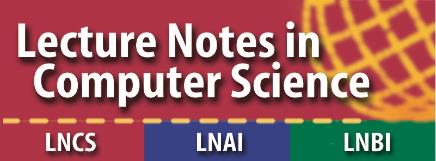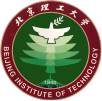
Prof. Meikang Qiu
Texas A&M University, Commerce, USA
ACM Distinguished Member, IEEE Distinguished Visitor
Title: AI Enhanced Cyber Security
Abstract: This talk will first illustrate how to use AI techniques to enhance cyber security of various systems. There are several ways to apply AI to cyber security area. This talk will use prediction-based AI technics to enhance the total security of the V2X (Vehicle-to-Everything) communication system. The talk takes serious considerations of latency while implementation the data encryption for V2X communication systems. Furthermore, the talk will discuss about deep reinforcement learning to protect the security of V2X system without scarifying safety of the vehicles. Examples and experimental results will be given to show the detailed techniques on applying AI techniques to enhance cyber security of vehicles, with the potential of implementing them to various cyber-physical systems.
Bio: Meikang Qiu received the BE and ME degrees from Shanghai Jiao Tong University and received Ph.D. degree of Computer Science from University of Texas at Dallas. Currently, He is the Department Head and tenured full professor of Texas A&M University Commerce. He is an ACM Distinguished Member and IEEE Senior member. He is the Chair of IEEE Smart Computing Technical Committee. His research interests include Cyber Security, Big Data Analysis, Cloud Computing, Smarting Computing, Intelligent Data, Embedded systems, etc. A lot of novel results have been produced and most of them have already been reported to research community through high-quality journal and conference papers. He has published 20+ books, 600+ peer-reviewed journal and conference papers (including 300+ journal articles, 300+ conference papers, 100+ IEEE/ACM Transactions papers). His paper on Tele-health system has won IEEE System Journal 2018 Best Paper Award. His paper about data allocation for hybrid memory has been published in IEEE Transactions on Computers has been selected as IEEE TCSC 2016 Best Journal Paper and hot paper (1 in 1000 papers by Web of Science) in 2017. His paper published in IEEE Transactions on Computers about privacy protection for smart phones has been selected as a Highly Cited Paper in 2017-2020. He also won ACM Transactions on Design Automation of Electrical Systems (TODAES) 2011 Best Paper Award. He has won another 10+ Conference Best Paper Awards in recent years. Currently he is an associate editor of 10+ international journals, including IEEE Transactions on Computers and IEEE Transactions on Cloud Computing. He has served as leading guest editor for IEEE Transactions on Dependable and Secure Computing (TDSC), special issue on Social Network Security. He is the General Chair/Program Chair of a dozen of IEEE/ACM international conferences, such as IEEE TrustCom, IEEE BigDataSecurity, IEEE CSCloud, and IEEE HPCC. He has won Navy Summer Faculty Award in 2012 and Air Force Summer Faculty Award in 2009. His research is supported by US government such as NSF, NSA, Air Force, Navy and companies such as GE, Nokia, TCL, and Cavium.
2nd Keynote Speaker

Prof. Qing Yang
University of Rhode Island, USA
Distinguished Professor, IEEE Fellow
Title: A Bus Authentication and Anti-Probing Architecture Extending Hardware Trusted Computing Base Off CPU Chips and Beyond
Abstract: Tamper-proof hardware designs present a great challenge to computer architects. Most existing research limits hardware trusted computing base (TCB) to a CPU chip and anything off the CPU chip is vulnerable to probing and tampering. This paper introduces a new hardware design that provides strong defenses against physical attacks on interconnecting buses between chips in a computer system thereby extending the hardware TCB beyond CPU chips. The new approach is referred to as DIVOT: Detecting Impedance Variations Of Transmissionlines (Tx-lines). Every Tx-line in a computer system, such as a bus and interconnection wire has a unique, intrinsic, and fingerprintlike property: Impedance Inhomogeneity Pattern (IIP), i.e. the impedance distribution over distance. Such unpredictable, uncontrollable, and non-reproducible IIP fingerprint can be used to authenticate a Tx-line to ensure confidentiality and integrity of data being transmitted. In addition, physical probes perturb the electromagnetic (EM) field around a Tx-line, leading to an altered IIP. As a result, runtime monitoring of a buses IIP can also be used to actively detect physical probing, snooping, and wiretapping. While the physics behind the IIP is known, the major technical breakthrough of DIVOT is the new integrated time domain reflectometer, iTDR, that is capable of carrying out insitu and runtime monitoring of a Tx-line without interfering with normal data transfers. The iTDR is based on two innovations: analog-to-probability conversion (APC) and probability density modulation (PDM). The iTDR performs runtime IIP measurements non-invasively and is CMOS-compatible allowing it to be integrated with any interface logic connected to a bus. DIVOT is a generic, scalable, cost-effective, and low-overhead security solution for any computer system from servers to embedded computers in smart mobile devices and IoTs. To demonstrate the proposed architecture, a working prototype of DIVOT has been built on an FPGA as a proof of concept. Experimental results clearly showed the feasibility and performance of DIVOT for both hardware authentication and tamperproof applications. More specifically, the probability of correctly identifying a bus is close to 1 with an equal error rate (EER) of less than 0:06% at room temperature. We present an example design that incorporates DIVOT into an off-chip memory bus to protect against physical attacks including probing/snooping, tampering, and cold boot attacks.
Bio: Qing Yang is Distinguished Engineering Professor in the Department of Electrical, Computer, and Biomedical Engineering at University of Rhode Island where he has been a faculty member since 1988. He is a director of High Performance Computing Lab (HPCL) of URI and is a recipient of 8 accomplishment awards while serving at URI such as Faculty Excellence Award, Distinguished Engineering Professor Award, Outstanding Intellectual Property Award. His research interests include computer architectures, memory and storage systems, computer networks, embedded computer systems and applications in neural-machine interface and biomedical engineering. He has published over 100 high quality technical articles in these research fields and held over a dozen issued patents and over a dozen pending applications. Majority of his patents have been licensed to computer industry with significant practical impact. Four high tech startup companies have been formed based on his patents. His latest startup, VeloBit, was based on his newly proposed concept: Content Locality, and was successfully acquired by Western Digital in July 2013. He has graduated 11 PhD students, of whom 4 are faculty members at major universities and others are leading researchers in computer companies such as Intel, Xerox, and EMC. Yang is a Fellow of IEEE. He has served in the professional society in various capacities including general chair of the ACM/IEEE International Symposium on Computer Architecture (ISCA2011), IEEE international Conference on Network, Architecture, and Storage (NAS), IEEE Workshop on Storage Network Architecture and Parallel I/Os (SNAPI); IEEE Distinguished Speaker; Editor of IEEE Transactions; and Program Committee member of numerous international conferences. Besides being a principal investigator of many academic research projects, Yang has also done collaborative research with IBM, Intel, EMC, Freescale, and several startup companies in the Boston area. He received his B.Sc. in computer science from Huazhong University of Science and Technology, Wuhan, China, in 1982, M.A.Sc. in electrical engineering from University of Toronto, Canada, in 1985, and Ph.D degree in computer Engineering from The Center for Advanced Computer Studies, University of Louisiana, Lafayette, in 1988.







